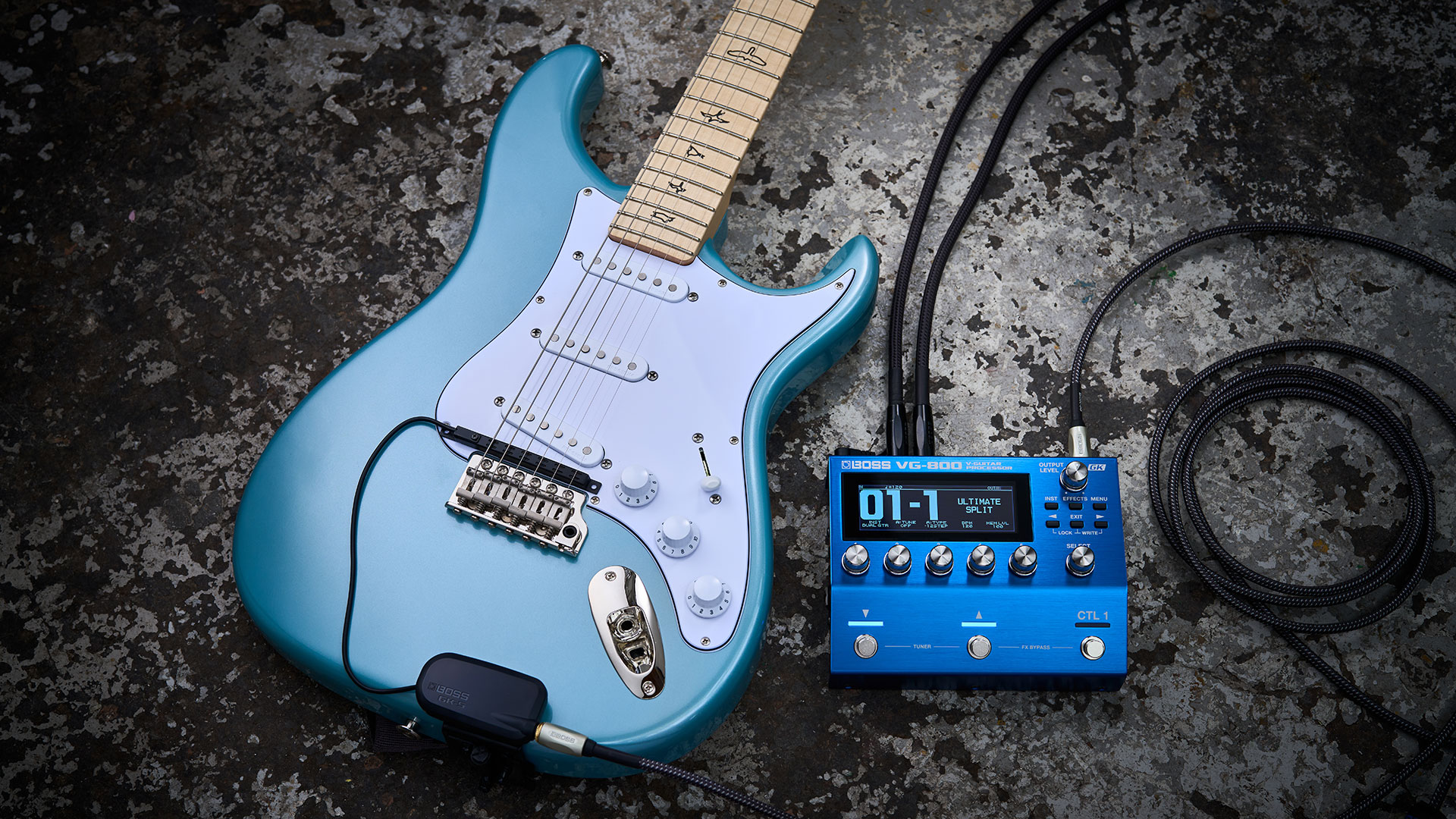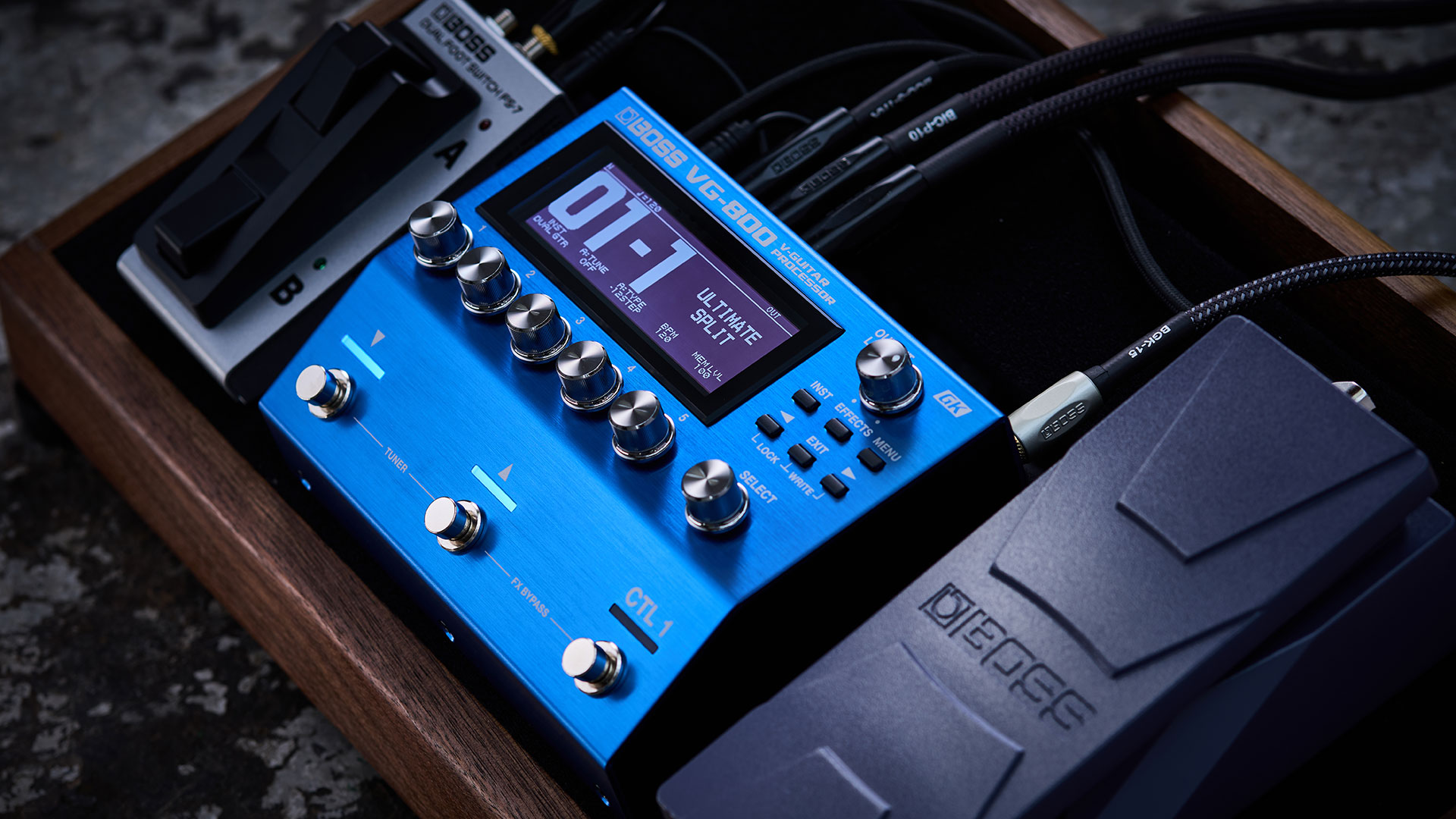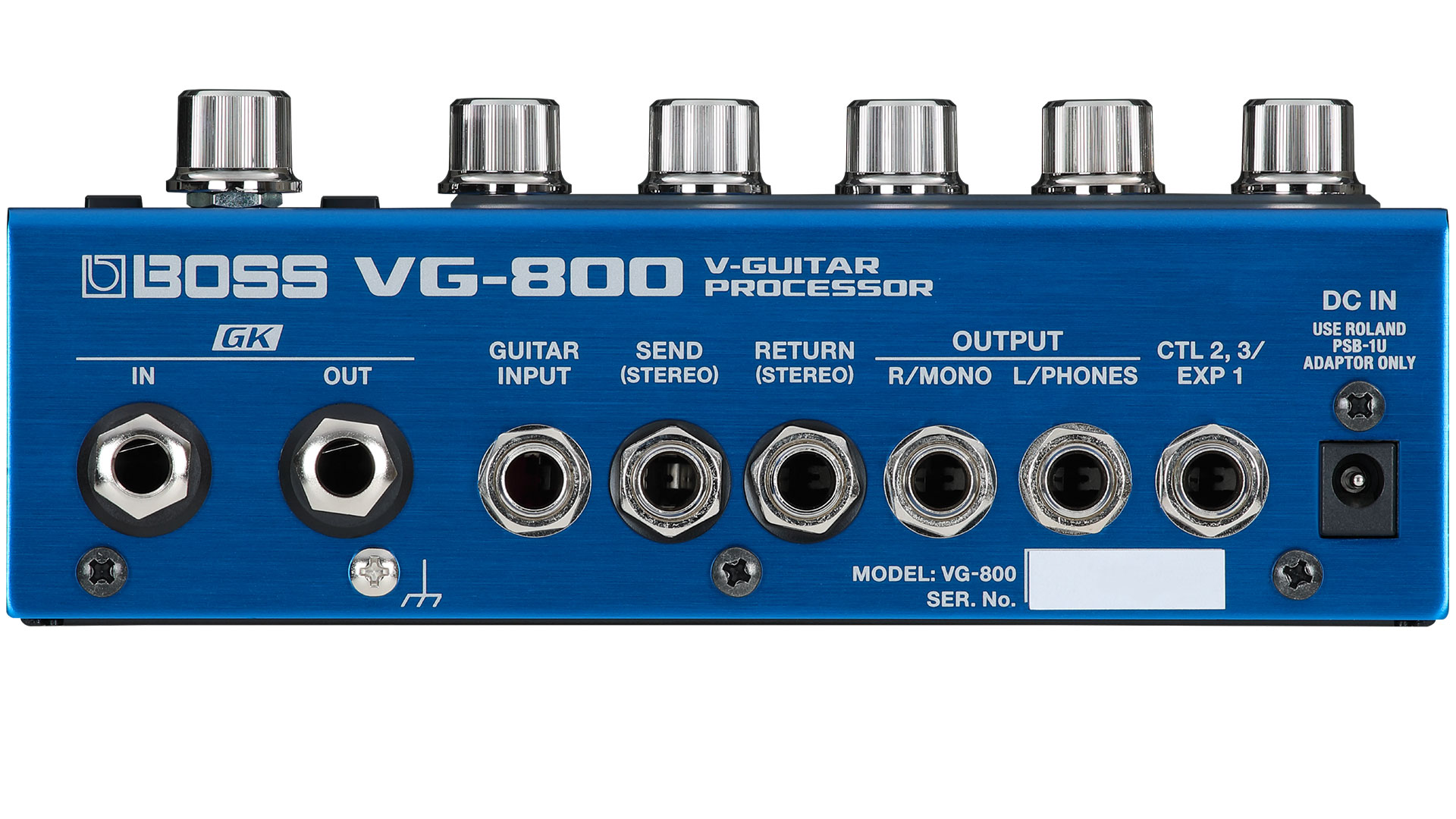“Infinite sonic possibilities”: The Boss VG-800 aims to make your guitar sound like any other electric or acoustic on the planet – plus sitar, banjo and synth
Forget amp sims, the pedal stalwarts’ latest V-Guitar tech has the potential to model just about any stringed instrument using your guitar

NAMM 2025: Boss has lifted the lid on one of its most ambitious modeling projects yet, the VG-800 V-Guitar processor. If ‘V-Guitar’ sounds like a throwback term, well, it is – having been introduced by Boss-owners Roland back in 1995.
The latest take on the technology seems to have moved things on considerably, though, and the VG-800 is designed to be paired-up with Boss’ Serial GK divided pickup.
In this sense, it’s presented as something of a partner to the existing Boss GM-800, but whereas that particular blue box is focused on creating more traditional synth-style tones, the new VG-800 is essentially a stringed instrument modeler. Pair them up and you could – should you so wish – have pretty much any instrumental base covered from your guitar.
Indeed, with the right presets or purpose-built patch combinations, the VG-800 should be able to create emulations of most existing electric guitar builds, plus acoustic, bass, sitar, banjo and even synth tones, alongside plenty of new combinations.
“[It] makes it easy to build virtual instruments with deep customization tools that include string behaviors, instrument style, pickup position, resonance, and much more,” promises the Boss press release. “Each string’s pitch and panning are adjustable, enabling alternate tunings and ultra wide sounds.”

What’s more, you can play different ‘instruments’ simultaneously, triggering them from individual strings, or use the pitch capabilities to create quick B-Bender style tunings and there’s the same onboard signal processing found in Boss’ perennially popular multi-fx units. These can be applied to both modeled instrument sounds and the regular guitar input.

As is standard in 2025, it’s also a USB and MIDI interface and Boss calls its it a recording “powerhouse”. You can record two modeled instruments and the direct guitar simultaneously – each to different tracks in your DAW – and even “re-guitar” dry signal back through the unit’s processors to make it into an alternative string instrument/guitar and shift pitches or tunings.
Get The Pick Newsletter
All the latest guitar news, interviews, lessons, reviews, deals and more, direct to your inbox!
It’s all packaged in a pedalboard-friendly footprint, at roughly the size of a trio of the firm’s landmark compact pedals. And, at $649, this tech – once the preserve of boundary pushing players like Matt Bellamy – is suddenly seeming quite attainable to the average player.
For more information, head to Boss.

Matt is Deputy Editor for GuitarWorld.com. Before that he spent 10 years as a freelance music journalist, interviewing artists for the likes of Total Guitar, Guitarist, Guitar World, MusicRadar, NME.com, DJ Mag and Electronic Sound. In 2020, he launched CreativeMoney.co.uk, which aims to share the ideas that make creative lifestyles more sustainable. He plays guitar, but should not be allowed near your delay pedals.
You must confirm your public display name before commenting
Please logout and then login again, you will then be prompted to enter your display name.
“Our answer to everything players have asked for and more”: Neural DSP’s Nano Cortex had one major drawback – but now it’s been addressed with a huge free firmware update that takes on Kemper and TONEX
"The ability to use this as a midweight MIDI brain for a gigging setup is what makes it unique.": Walrus Audio Canvas Clock review










